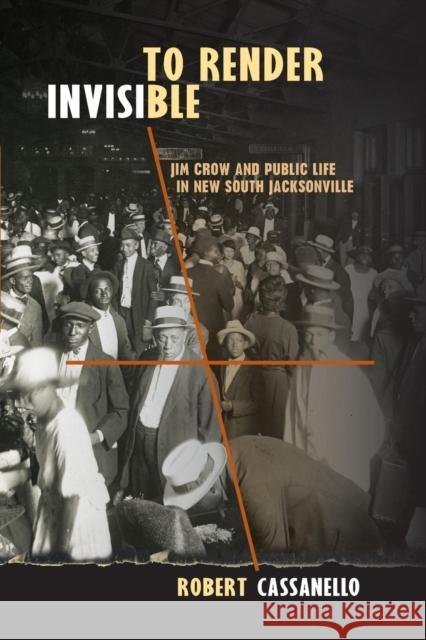To Render Invisible: Jim Crow and Public Life in New South Jacksonville » książka
To Render Invisible: Jim Crow and Public Life in New South Jacksonville
ISBN-13: 9780813062198 / Angielski / Miękka / 2016 / 206 str.
To Render Invisible: Jim Crow and Public Life in New South Jacksonville
ISBN-13: 9780813062198 / Angielski / Miękka / 2016 / 206 str.
(netto: 64,86 VAT: 5%)
Najniższa cena z 30 dni: 67,96
ok. 22 dni roboczych.
Darmowa dostawa!
Winner of the Florida Historical Society Harry T. and Harriette V. Moore Award Covering a compelling local history, deeply imbricated with state and national events, To Render Invisiblebrings together dramatic stories of continuity and change, of gender and race, and of respectability and resistance in a brisk narrative lucidly informed by social theory. David Roediger, author ofThe Wages of Whiteness Carefully develops an original argument drawing from several theoretical perspectives to make the claim that African Americans in Jacksonville were able to continue to struggle for justice and public space even after a wave of white supremacy engulfed the city as well as the state. Paul Ortiz, author ofEmancipation Betrayed Well written, clearly and logically organized, and built upon a foundation of deep research in primary sources, including newspapers, Freemen s bureau records, official documents and personal papers. Louis Kyriakoudes, author ofThe Social Origins of the Urban South What defines a city s public space? Who designates such areas, who determines their uses, and who gets to use them? Robert Cassanello uses rough-and-tumble nineteenth-century Jacksonville as both backdrop and springboard to explore social transformation in Florida and the South. When free black men in the city were first given the right to vote, conservative lawmakers made concerted efforts to drive them out of white public spaces. They attempted to make the public sphere a white domain by rendering blacks voiceless invisible in the public square. In response, a black counterpublic developed, flourishing clandestinely at times and openly challenging racism in the public sphere at others.
Fortified by the theories of Henri Lefebvre, David Harvey, and Jurgen Habermas, To Render Invisibleis the first book to focus on the tumultuous emergence of African American public life in Jacksonville between Reconstruction and the 1920s. Robert Cassanello brings to light many of the reasons Jacksonville, like Birmingham, Alabama, and other cities throughout the South, continues to struggle with its contentious racial past.
"











